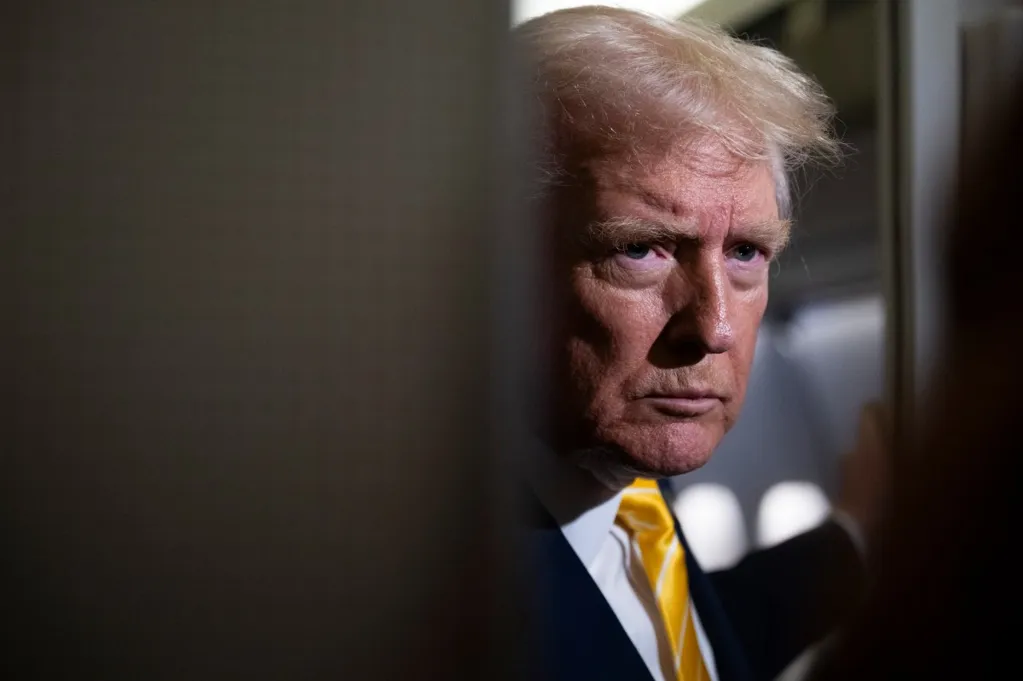A narrow procedural crowbar pried open the House of Representatives this week. The tool was a discharge petition -- historically, very rarely successful -- that helped force a 427-1 vote on the "Epstein Files Transparency Act," and the Senate agreed to speed it to President Donald Trump, who so far has said he'd sign it.
But the "new" Epstein transparency process has an escape hatch built on Biden-era logic. The bill Trump has backed outlaws redactions for political embarrassment -- but echoes the very clause Joe Biden's Justice Department relied on to keep Epstein records sealed. If disclosure would "jeopardize an active Federal investigation," Justice can temporarily, narrowly hold material back. On November 14, Trump said he'd ask DOJ to probe Epstein's ties to various high-profile figures, and Attorney General Pam Bondi said she'd assigned a U.S. attorney to lead a federal investigation. That gives DOJ an "ongoing investigation" rationale.
Whatever Trump's critics say, that isn't a loophole invented this week; it's the same rationale the Biden-era DOJ cited in 2022 under FOIA Exemption 7(A) to protect an "ongoing criminal investigation of Jeffrey Epstein and others."
In other words, Congress promised sunlight on a 30-day clock while inadvertently or otherwise reaffirming the old, court-tested carve-outs for victim privacy and live cases -- the very exemptions that kept much of this material dark under Biden.
Democrats cast the vote as a victory for transparency. "We will pass the House's bill without changes, without delay and we will finally get this done," said Senate Democratic leader Chuck Schumer.
Ro Khanna, the California Democrat who co-led the discharge petition with libertarian-leaning Republican Thomas Massie, pitched the release as a moral necessity: "A nation that cannot hold accountable rich and powerful men who have abused young girls is a nation that has lost its moral and spiritual bearings."
On the right, Speaker Mike Johnson has cautiously framed himself as pro-transparency. "It's not a reversal," he said, but warned that forcing disclosures in 30 days is "incredibly dangerous" given classification and victim-privacy concerns.
National Review's editors called the latest Democratic-released emails "embarrassing" for Trump but said they contain "no smoking gun," urging "maximal transparency" overseen by judges rather than a "willy-nilly, politicized push."
Trump has simply insisted: "We have nothing to hide."
Republican Representative Clay Higgins -- the lone "no" -- warned the bill "reveals and injures thousands of innocent people ... witnesses, people who provided alibis, family members."
What Congress just advanced is a transparency mandate with the same brakes. The act compels the attorney general to publish, within 30 days, "all unclassified records, documents, communications, and investigative materials" related to Epstein and Ghislaine Maxwell -- flight logs, immunity deals, internal DOJ communications, and records on Epstein's detention and death. It also orders DOJ, after publication, to provide Congress a non-redacted list of every government official, public figure, or foreign dignitary named in the materials. And it bars withholding for "embarrassment, reputational harm, or political sensitivity."
However, it explicitly permits narrowly tailored, temporary redactions where disclosure "would jeopardize an active Federal investigation or ongoing Federal prosecution." It likewise shields child-exploitation imagery, certain victim identifiers, depictions of abuse, and properly classified national-security information. For each redaction, DOJ must file a written justification in the Federal Register and "declassify to the maximum extent possible," or at least publish an unclassified summary. This framework unmistakably mirrors what Biden's DOJ already told a court: that it was withholding Epstein-related materials under FOIA's Exemption 7(A) to avoid harming an "ongoing criminal investigation of Jeffrey Epstein and others," including potential co-conspirators. The politics have reversed; the doctrine is the same.
Survivors and their allies pressed Congress not to add new caveats; obliged with a clean, fast Senate pathway. Yet the decisive arena now shifts to DOJ, where line attorneys will comb each page, draft Federal Register justifications, and decide how expansively to read "jeopardize an active investigation." And because the act requires DOJ to transmit the names list to Congress (not necessarily to post it online), many revelations may first surface via hearings, subpoenas, or selective leaks rather than a single, neatly indexed website drop.
Whether this is deliberate strategy or circumstance is not known. But did Democrats "play the same game" under Biden that Trump's Justice Department can now play? In a narrow, legal sense: yes. The Biden DOJ told a court it was withholding Epstein records because related investigations and potential prosecutions remained active; the new statute explicitly allows similar withholdings. Bureaucracy, then as now, is where the battle ahead may be fought.
